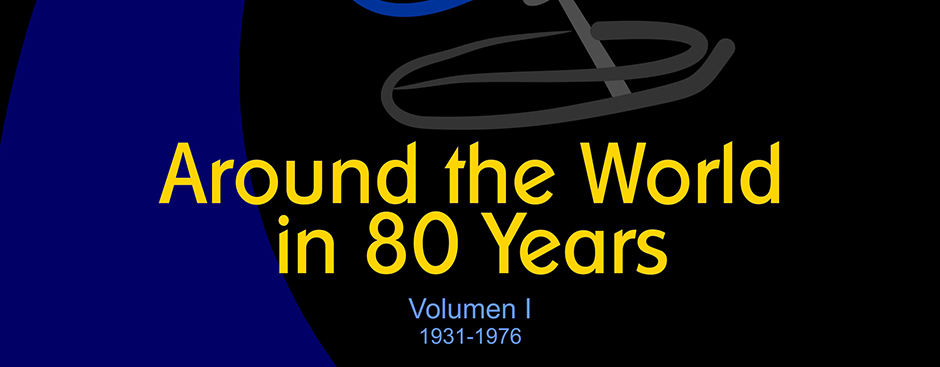Around the World in 80 Years
Volumen I
1931-1976
The first volume of this work by Modesto Seara, covers the period 1931-1976 and will be followed by a second volume for 1977 and the following years. As the author explains, it is not an autobiography or a book of memoirs, but with his life as the guiding thread, he explains the world in which he has lived: the Spain of the civil war and the Franco regime, the Second World War, and the first youth rebellions against the regime in the 1950s, giving his personal view of certain events in which he participated, such as the famous Pinillos survey, the anti Franco demonstration of 1954 and 1956, where he witnessed the incident of Alberto Aguilera. This volume also contains his experience of England in 1957; the political crisis in France (where he live from the end of the 1957 to 1960) leading to the disappearance of the Fourth and the birth of the Fifth Republic, under General de Gaulle; Mexico in 1960, his usual place of residence from that date onwards; the internal and international crises in the United States, from the University of Utha where he was a professor from 1965 to 1966 and lived through the tensions of the struggle for civil rights and the Vietnam War. In 1969-1970 he stayed in Europe, mainly in Spain and West Berlin, which allowed him to give personal testimony of the situation in Berlin and the German Democratic Republic, where he was invited to give some lectures in several universities.
The book reflects the various dimensions of Modesto Seara’s life: the academic part, from his training at the Central University (now Complutense) in Madrid, studies in England, at the Sorbonne in Paris (his doctoral thesis, published in several languages, was in the fifties and sixties, a pioneering work on the law of outer space ), stay in Geneva, professor at the University of Utha (Salt Lake City); the political part, as an active member of the Spanish Socialist Workers’ Party, which led him to participate in actions that were not very well known, alongside many of the members of the Spanish republican exile in Paris and Mexico; the journalistic dimension, as a contributor to several newspapers in Mexico (where he directed two Sunday supplements in El Sol de México and El Universal ) and Spain, and in the public television of Mexico (Channel 13); for more than two decades he participated, as an member of an international commission, in a movement to support the Jews of the Soviet Union.
His complete integration into Mexican life during almost sixty years placed him in the position of observer, and at times actor, privileged, providing additional information on many of the country’s events during that period. At the same time, his profession as an internationalist forces him to analyze the great problems that have arisen in the world since the 1930s, reflected in more than thirty books and pamphlets, and more than one hundred and fifty academic articles and essays. From the end of 1976 he returned to active politics in Spain, in that key phase of the Spanish political transition, which will be the subject of the second volume, in which he will also explain the greatest project of his life which was, over 28 years, the design and management of a high quality public university system, essentially oriented towards science and technology, in one of the states with the most natural resources, that remains one of the least developed in Mexico.
